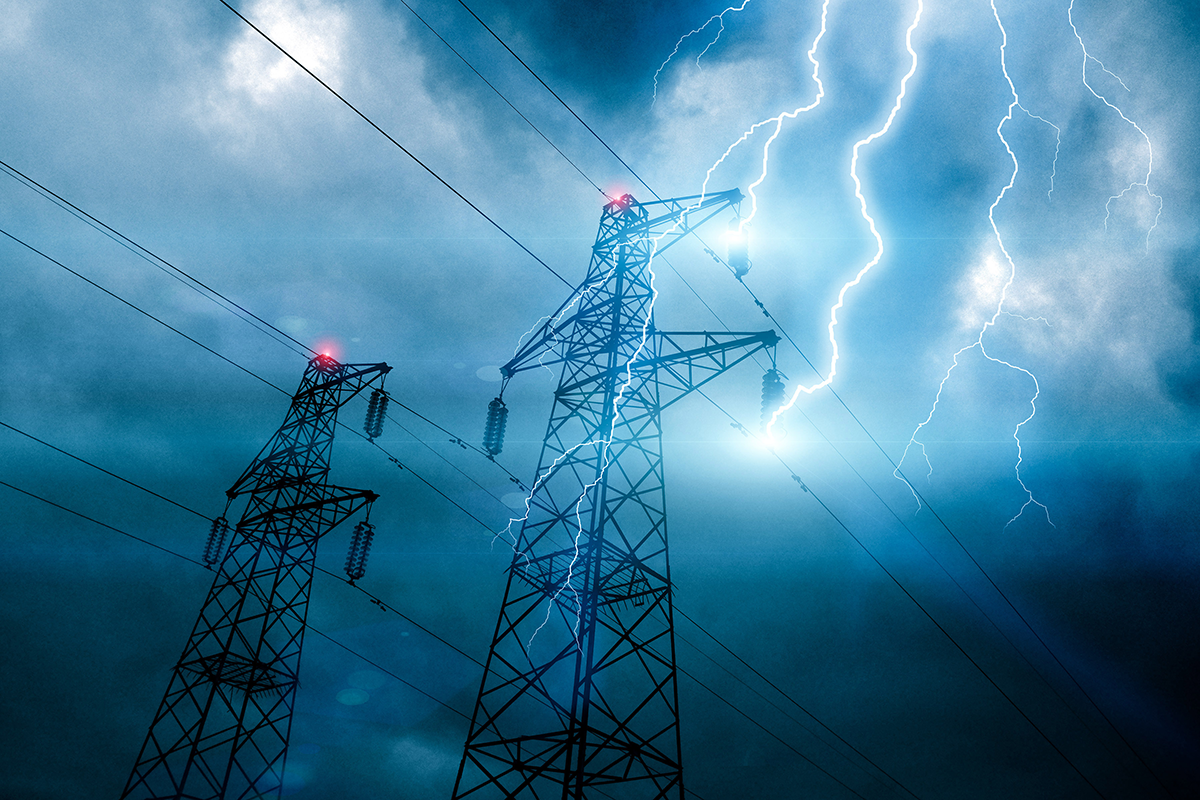How to Minimize Business Disruption from Power Outages

When a power outage occurs, employees can’t perform their jobs, resulting in unplanned downtime that can cost a business thousands, if not millions, of dollars. A single power outage can prove so devastating to a business’s revenue and operating costs that it can lead to a situation that makes recovery difficult.
Surging U.S. Power Outages
Power outages have been on the rise in the U.S. for more than a decade. The increased demand for electricity on an aging and more vulnerable infrastructure is the culprit and weather-related events are the top cause.
According to the nonprofit research group Climate Central, from 2000 to 2021, 83% of reported power outages were caused by weather-related events. These include high wind, heavy rain, floods, thunderstorms, snow, ice, freezing rain, tornadoes, hurricanes, and extreme heat, which can lead to drought and increase the potential for wildfires.
Non-weather-related causes include animals contacting fuses or transformers, vehicle accidents that damage poles and power lines, equipment failure, and power surges.
Power Outage Effects: Not Good for Business
No matter the cause of a power outage, the effect is the same — no power. No power can have a variety of implications that impact productivity and a business’s bottom line, including:
1. Customer Loss and Revenue Loss
If customers can’t contact you and you can’t contact them, orders for services or goods come to a halt. Even if the power loss is short-term, the effects of an outage can linger, impacting how your customers view your business.
For example, a customer may write a bad review, tell friends or family about their poor customer experience, or end their business relationship with you and seek out a competitor — all of which affect your reputation and revenue.
2. Unturned Inventory
If customers can’t make purchases or deliveries can’t be made, unturned inventory increases, which results in scrambling to find solutions to handle additional inventory and adjust incoming shipments.
If your business handles perishable goods, such as pharmaceuticals, flowers/plants, or foods that require refrigeration, you may have to dispose of the inventory.
3. Supply Chain Problems
Business-to-business (B2B) transactions rely on other businesses to maintain smooth operations and a well-functioning supply chain. If one business loses power and can’t provide inventory or services to another business, it can exacerbate supply chain challenges and cause a dramatic ripple effect throughout the supply chain.
4. Lost Data/Damaged Equipment
When a power outage occurs, computers and operating systems shut down unexpectedly. This can cause open files to become corrupted, damaged, or lost, and can damage electrical equipment.
Productivity can also be impacted. Employees may be unable to complete job tasks and numerous hours will likely be spent on data recovery — costing time and money and disrupting normal business operations.
How to Minimize Power Outage Effects
Minimizing or preventing the impact of a short-term or long-term power outage on your business can be as simple as being prepared. The following are three precautions to take to prepare for an outage:
1. Create a Business Continuity Plan
A business continuity plan outlines how your business will remain operational, and how employees will be protected during a power outage or other disaster.
When creating a plan, it’s best to take a committee approach that identifies potential risks, determines how those risks will impact operations, and defines the procedures needed to mitigate them. Your plan should be tested and practiced, including employee drills so your employees know their roles, enabling your business to recover more quickly.
Remember to test your plan to keep it current and tailored to your business needs.
2. Buy a Backup Generator
A backup generator is a simple way to ensure your operations can continue running when a power outage occurs.
There are two types of generators — portable and standby. A portable generator is typically lower in cost, has less wattage, and runs on gasoline. A standby generator is ideal for larger businesses, runs on diesel, natural gas, or propane, and automatically turns on when a power outage is detected.
To determine the generator size and type needed and ensure proper installation, schedule a consultation with a generator specialist.
3. Have an Emergency Fuel Plan
Without a reliable fuel supply, a backup generator is useless, and your vehicles are not road ready.
An emergency fuel plan ensures you have the fuel you need when conventional fuel is unavailable. Make sure your fuel provider has the tank wagon capacity to cover your needs, multiple sources for guaranteed fuel, and 24/7/365 availability. Additionally, discuss whether you need to rent fuel storage tanks. If you need to rent tanks, ask your fuel provider about tank monitoring services so you can accurately monitor and track inventory and ensure fuel quality and availability.
Whether it’s to mitigate the risks of an unexpected event such as a power outage, determine the most efficient routes for your drivers, or set business goals for the upcoming year, planning ahead matters. You can’t predict the future, but you can anticipate it. And in doing so, put your business ahead and on track for a bright future.